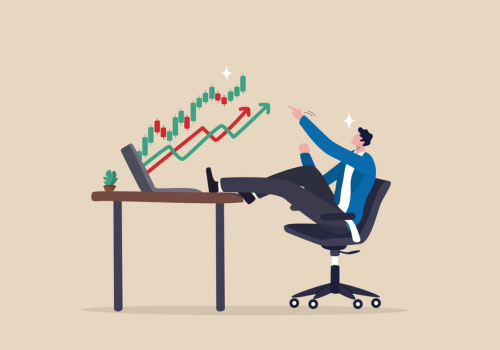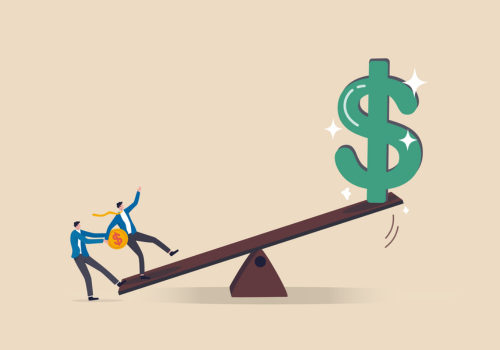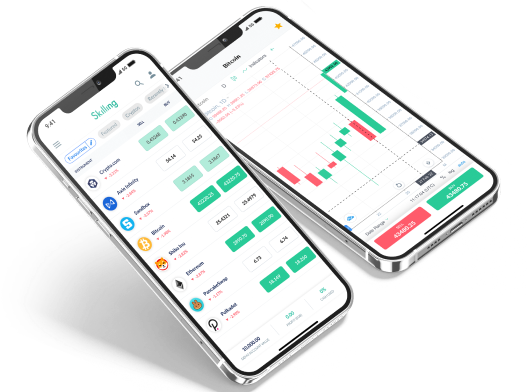Day trading strategies in 5 minutes + trading quiz

What is day trading?
There are those who make a living from stock trading and shares trading and describe themselves as day traders. However, you're likely to be asking what day trading is exactly, and what do these day traders do? These traders are individuals who open and close positions in the financial markets during the same day, seeking to take advantage of price action in the market – both up and down. Some day traders may even place multiple trades on the same assets. All of which are intended to exploit fractional price movements in the markets.
It’s a short-term trading strategy that differs from swing trading and position trading, which requires traders to be patient and wait for sizeable market moves over several days, weeks or even months.
It’s not quite as short-term as scalping trading, which sees traders place multiple trades throughout the day, attempting to secure multiple tiny profits from the market, all of which adds up to a tidy sum at the end of a week or month’s trading of shares.
Day traders will typically lean on technical and fundamental analysis to underpin their day trading strategies. The rapid advancements in technology, including high-speed connectivity and state-of-the-art trading platforms, have made day traders more able to react to market news and trends and open and close positions within minutes or hours of each other.
Traits of a day trader
A day trader is someone that is serious about trading the markets for a living. They aim to extract small but frequent profits from the markets daily. When it comes to traits or characteristics needed to become a successful day trader, the following personalities are prerequisites:

- Methodical
- Day traders won’t be influenced by market noise. They are one-track-minded, undertaking due diligence and determining the risk-reward ratio before placing the trade.
- Level-headed
- Successful day trading requires a clear, calm head. One of the key trader traits of day traders is being able to leave emotion at the door. The moment emotion influences trading decisions, there is a risk of human nature meddling with your trading plan.
- Strategic
- Day trading requires you to have an edge over most of the market. Trading strategies give day traders multiple weapons in their trading arsenal to attack the markets and yield consistent profits while limiting losses.
- Disciplined
- Successful day trading requires individuals to be capable of sticking to their trading plan. The popular saying in trading circles is to “plan the trade and trade the plan”. Those who can forget about a losing trade and avoid chasing losses are more likely to thrive.
What's your Trading Style?
No matter the playing field, knowing your style is the first step to success.

Strategies of day trading
When it comes to trading behaviours, day traders usually abide by one of three common trading strategies. Each of which is designed to exploit brief movements in the market, which occur for varying reasons:
- Mean reversion
- An asset’s value will typically have a ‘normal’ or average price point that it oscillates around. Although some assets will see volatile moves up and down away from that mean value, some day traders believe that an asset’s value will typically gravitate back towards that average price by the end of a day after extreme moves.
Some day traders enter the market when the price of an asset moves away from its historical mean. Moving average indicators can help find instruments that divert significantly from these historic averages, with day traders anticipating a return to its past price trajectory - a strategy known as mean reversion. - Scalping
- Scalping is the shortest of all day trading strategies. It attempts to take small but regular profits, underpinned by a significant strike rate. Scalpers are highly disciplined, as they need a stop-loss in place to cap losses relative to the potential profit. Scalping is most common in Forex trading, which boasts the most liquid markets on both sides of the order book.
- Order flow
- Day trading can also be influenced by monitoring order flow and the weight of money entering the market. Order flow indicator signals can pinpoint when assets are ‘overbought’ i.e. the number of traders seeking to buy has dried up. They can also find ‘oversold’ assets i.e. when the number of trades looking to sell has also dried up.
- Trend trading
- Day traders also look to piggyback on market momentum. Wherever an asset displays a string of higher highs or lower lows, it’s a sure-fire sign for trend traders to go long (buy) or short (sell). Using a wealth of technical indicators, including Relative Strength Index (RSI) and Moving Average Convergence Divergence (MACD), it’s possible to pinpoint momentum during the trading of shares.
- Momentum trading
- Day traders that trade market momentum will keep a close eye on price action and movements instead of fundamental analysis. Momentum day traders will seek out assets with high liquidity to enable them to dip in and out of the market without incurring slippage.
Day trading tips for beginners
If you are thinking of trying day trading for the first time, be sure to keep in mind the following three aspects which can make your life easier when placing short-term trades into the markets:
Tight spreads
When you are placing short-term day trades into the financial markets, choosing a broker that offers tight spreads is vital. If a broker offers a two-point spread, this means the market must move two points in your favour just to break even. The smaller the spread, the more possible it is to make short-term profits.

Volatility
There’s a saying in stock trading that “where there’s volatility, there’s opportunity”. Volatility is something that day traders require to be able to profit from market moves. Of course, volatility means that price action can go one of two ways, so it’s important that you deploy risk management strategies such as stop or trailing stop losses to limit losses when the market goes against you.

Leverage
When day trading financial markets like Forex, where the daily price moves are somewhat smaller than in any cryptocurrency or stock trade, day traders often take advantage of leverage offered by brokers. Be mindful that whilst leverage can amplify profits, it can have the same effect as losing trades too.

Instruments a day trader uses and why
Trading instruments are vital for the trading behaviours of any day trader. First and foremost, trading software like MetaTrader 4 is vital for razor-sharp order execution in the markets. These trading platforms are designed to offer a host of customisations that allow day traders to utilise the instruments and data they need to make sound decisions fast.
Within these customisations, day traders will get access to many technical indicators that can be used to identify patterns in the market. There are even automated bots and algorithms that can not only be used to predict future price movements but to manage the execution of orders in the market.
Trading software will not only have technical indicators, but they’ll also offer a good breadth of fundamental indicators too in the form of multiple news sources. Access to news releases from multiple reputable sources is important when day trading reactions to corporate or geopolitical news stories.
Experience Skilling's award-winning platform
Try out any of Skilling’s trading platforms on the device of your choice across web, android or iOS.

Things you must know before you start day trading
If you’re thinking of trying day trading yourself, we’ve put together some top tips for you to use as a precaution to manage your risks in the markets:
- Trading time
- Be mindful of when the financial markets close for the trading day. Day traders do not hold open positions overnight, so don’t be caught out with your trading hours otherwise, your broker will ask for a bigger margin requirement to sustain your position.
- Popular intraday trading instruments
- Many financial instruments lend themselves well to day trading. The forex markets are naturally popular due to the sheer volume of money flowing in and out of the market. Equities and equity futures can also be popular when using technical or fundamental analysis. Commodities can also fluctuate sufficiently for day traders depending on fundamental, geopolitical factors.
- Prepare your risk management approach first
- It’s no secret that only a small percentage of retail traders are said to be profitable long-term. One of the main reasons why so many retail traders struggle is due to their lack of a risk management plan. At a basic level, make sure you only risk 1% of your overall trading bank on each trade. This ensures you would have to experience a 100-trade losing run to blow your entire bank. Stop-loss orders are your best friend to define the maximum acceptable loss per trade.

How to start day trading with a demo account
If you think you have the mental attributes to succeed as a day trader, it’s always a good idea to test your theory in a low-risk fashion first. That’s why we offer free demo trading accounts that allow you to place short-term trades into the markets using demo funds.
As a member of Skilling with a demo trading account, you’ll still get free access to all our video content and trading articles to hone your trading skills and knowledge. These should answer any questions you have regarding how to start day trading.
Just be mindful that the mentality of using demo accounts differs from real-money accounts as the risk factor must be taken into account when day trading with real money. However, providing you can maintain the same discipline from your demo account when activating a real-money Skilling account, this shouldn’t be an issue. Nevertheless, always respect your day trading bank and manage your money responsibly, with risk/reward ratios that are in your favour long-term.
Starting your day trading journey today?
At Skilling, we’re here to help you start your day trading journey the right way. Check out the following articles suitable for those looking to explore the financial markets:
Understanding volatility: The key to risk management
Learn how volatility can help inform a credible risk management plan when day trading the markets.Forex trading tips
Average daily trading volumes of $5 trillion make the Forex markets a lucrative opportunity for Forex traders. Find out how to get started with intraday trading Forex.The complete guide to scalping trading strategies
Scalping is a hugely popular day trading approach. Find out how to become a master scalper of the markets yourself.
Day trading FAQs
- How do I manage day trading risks?
- Understanding how to execute risk management tools like limits and stops are key weapons in a day trader’s arsenal. Cutting losing trades quickly and letting winning trades run to maximise profits is just as important in day trading as any other form of shares trading.
- Which markets are best suited to day trading?
- Stock trading is particularly common among day traders, with positions closed for a profit or loss at the end of the day to avoid ‘gapping risks’ of the share price opening the next day much higher or lower than the previous day’s closing price. Indices and forex are equally popular due to the liquidity that these markets offer, with their ability to be traded using CFDs.
- Why are detailed day trading records important?
- Self-analysis is vital as a financial trader. When entering a particular day trade, note the reasons for opening your position as it can help you evaluate flaws in your trading strategy after the event in a bid to plug leaks in your profit & loss.
Not investment advice. Past performance is not indicative of future results. Trading cryptocurrency may not be available depending on your country of residence.
Do not stop learning about the financial markets
We’ve got a whole host of resources that are ready and waiting to educate newcomers to trading CFDs online, including:
- CFD trading account types
- Choose the trading account that suits your trading best
- CFD trading basics
- Learn the core principles of trading the financial markets using CFDs.
- CFD trading psychology
- Discover the five rules of thumb to mentally master the stock markets.
What is Forex trading?
Forex trading is the buying and selling of currencies on the foreign exchange market with the aim of making profit.Forex is the world's most-traded financial market, with transactions worth trillions of dollars taking place every day.
What are the benefits?
- Go long or short
- 24-hour trading
- High liquidity
- Constant opportunities
- Trade on leverage
- Wide range of FX pairs
How do I trade Forex?
- Decide how you'd like to trade Forex
- Learn how the Forex market works
- Open a Skilling CFD trading account
- Build a trading plan
- Choose a trading platform
- Open, monitor and close your first position










